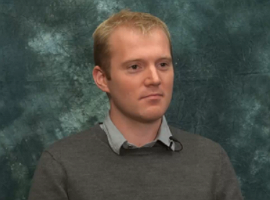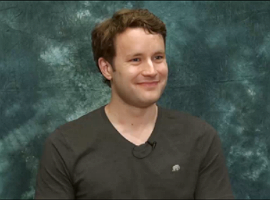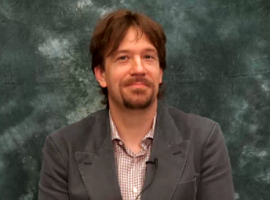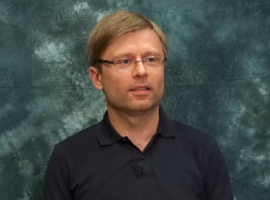InfoQ Homepage QCon Software Development Conference Content on InfoQ
-
Tim Ward introduces the OSGi Promises specification
The OSGi Alliance is working on a Promises specification which will provide CompletableFutures that can run all the way back to Java 1.4. Tim explains why this is of benefit and how it compares to Java 8, along with where you can find out more information about the project and how it can be used both inside and outside an OSGi framework.

-
Ines Sombra on Data Services at Engine Yard
Engine Yard's Ines Sombra discusses state management in the cloud in general, and specific data stores including MySQL, Postgres and some NoSQL alternatives. She also explains why the pets and cattle analogy doesn't work for her, and what need to be done in organisations with respect to trusting people and trusting the infrastructure.

-
Craig Motlin Talks to InfoQ about the Origins and Benefits of GS Collections
Craig Motlin, technical lead of the GS Collections project, talks about where GS Collections came from, how it compares with other collections libraries, and what influence it had on Java 8. He describes the different philosophy of GS Collections as compared to other collections libraries, and what benefits open-sourcing the internal library has had

-
Gilad Bracha on How to Make Javascript and the Web a Good Compilation Target
Gilad Bracha explains what Javascript needs to become a good compilation target for a wide variety of languages, live programming, FRP, and much more.

-
Ian Robinson on Neo4j's History, Data Structure and Use Cases
Ian Robinson talks to Charles Humble about the history of Neo4J, it's data structure, and use cases such as recommendation engines, network impact analysis, route finding and fraud detection.

-
Interview with Tim Ward on the Bndtools project
Tim Ward speaks to InfoQ about Bndtools, a means of building OSGi solutions in Eclipse using a code-first approach. Bndtools provides a means to build, test, automatically version and deploy bundles. By providing a bundle-on-save action, Bndtools can automatically create the build JAR and (re)deploy it into a running framework, giving one of the shortest development cycles available in IDEs today.

-
Interview with Adam Ernst on functional approaches for iOS applications
Adam Ernst talks about how functional programming and immutable data structures have made Facebook’s iOS app much easier to test and debug. By decoupling the data pipeline from the UI objects, and minimising the wrk on the UI thread, the application has become easier to test and suffers less bugs than when the UI was generated procedurally.

-
Dave Arel on Hybrid Mobile Development
Dave Arel explains when to do a hybrid app vs a native app on mobile, how a hybrid app can facilitate app upgrade, how to choose JavaScript frameworks and much more.

-
Yoni Goldberg on Microservices and Scala at Gilt
Yoni Goldberg explains Gilt's architecture which consists of 350+ microservices, how teams decide the scope of a microservice, API design and management, monitoring, Scala at Gilt and much more.

-
Dave McCrory on Data Services
Dave McCrory explains how he coined the term 'data gravity', and how he expects the rise of data related microservices to deal with its consequences. He also gives an overview of Basho's Riak version 2, and what else can be expected from that platform in nearby releases.

-
Juergen Hoeller Gets Personal on Spring 4, Java 8, Spring XD, and all things Spring
Juergen Hoeller has been leading the development of the Spring core framework for over 10 years. In this interview, we get a glimpse of the passion and the insight that drive Spring. Some of the topics covered include Spring 4, adoption of Java 8, moving Spring forward, Spring Boot, enterprise features, Spring XD, and much more.

-
TJ VanToll on Hybrid Development for Mobile Apps
TJ VanToll explains hybrid development for mobile apps: reasons to choose hybrid over native and vice versa, issues with web views for mobile apps, cross compilation vs web apps, and much more.
